Stress is one of the most common challenges in modern life, affecting both mental and physical health. When you think about ways to relax, you might imagine meditating in complete silence or listening to calming sounds like ocean waves, rain, or soft music.
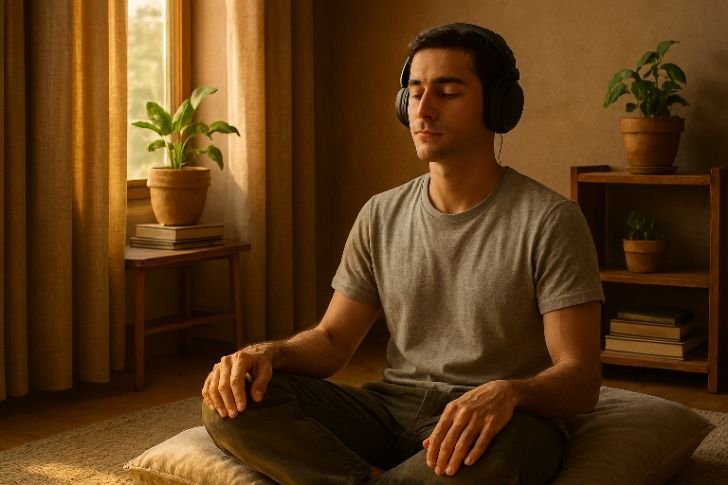
But when it comes to sound therapy vs silence for stress relief, which actually works best?
One of the biggest debates in the wellness world today is the ongoing discussion about sound therapy vs silence for stress relief. While some people feel deeply relaxed when listening to soft background sounds, others insist that only complete silence allows the mind to reset. Understanding the science and psychology behind these two approaches can help you choose the best method for your personal needs.
This article dives deep into the science, the benefits, and the practical ways you can use sound or silence to reduce stress, improve focus, and even enhance sleep quality. Along the way, we’ll connect this topic to related wellness strategies like blocking blue light for better sleep and choosing the best sleep positions for digestion and gut health.
What Is Sound Therapy?
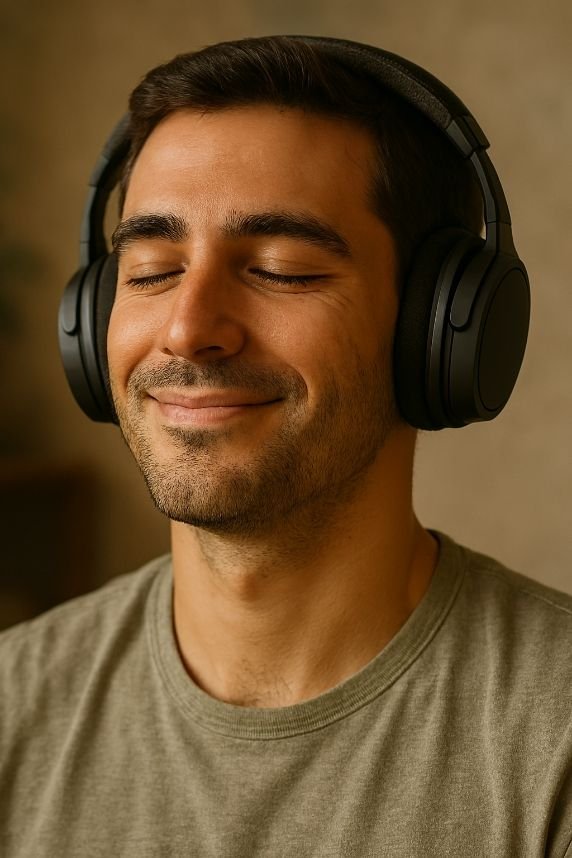
Sound therapy is a method of using sound waves—often in the form of music, nature sounds, or specific frequencies—to improve mental and physical health. It can include:
White noise (steady sound that masks other noises)
Pink noise (lower frequencies that create a more natural sound, like rain)
Binaural beats (different frequencies in each ear to influence brainwave activity)
Nature sounds (ocean waves, birdsong, wind in the trees)
These sounds work by stimulating certain brainwaves associated with relaxation, creativity, or focus. The idea is that just as food nourishes your body, certain sounds can “nourish” your mind.
Research suggests that certain frequencies used in sound therapy can slow down brain wave activity, helping the nervous system transition into a more relaxed state. This makes sound therapy a valuable tool not only for stress management but also for improving sleep quality. For example, people searching for the best sound for sleep often discover that white noise or nature sounds can help them drift off faster. These benefits highlight why the “sound therapy” part of the sound therapy vs silence for stress relief debate continues to attract attention from scientists and wellness enthusiasts alike.
Silence: The Overlooked Stress-Reliever
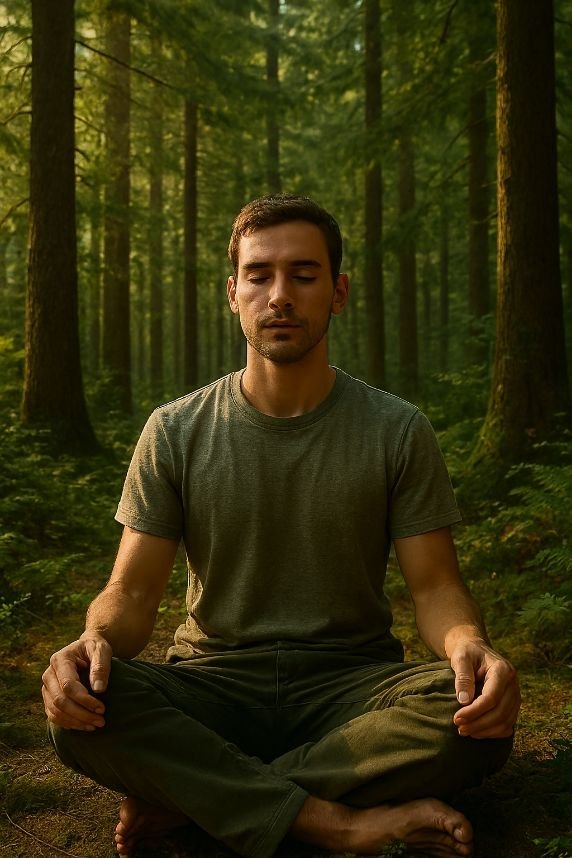
Silence isn’t just the absence of sound—it’s a powerful tool for mental clarity. In a world filled with constant notifications, traffic noise, and background chatter, true silence has become rare. Yet, research shows that periods of silence can lower blood pressure, slow your heart rate, and improve emotional regulation.
Spending even just five minutes in a quiet space each day can reduce cortisol levels and improve focus. Silence gives your brain time to process thoughts without interruption, which can be deeply restorative.
While sound therapy offers clear advantages, silence holds its own unique power. In a world filled with constant background noise, moments of stillness can feel like a rare luxury. Silence allows the body to rest and the brain to enter a deeper meditative state. In fact, many people who try white noise vs silence report that the absence of any auditory input helps them notice subtle bodily sensations, breathing patterns, and mental clarity that they often miss during sound-filled environments.
Sound Therapy vs Silence for Stress Relief: The Science
When we compare sound therapy vs silence for stress relief, the answer isn’t one-size-fits-all—it depends on the person and the situation.
Sound therapy works best for people who live in noisy environments, have racing thoughts, or struggle to fall asleep because of background noise.
Silence works best for those who can access a quiet environment and want to deepen their meditation or reflective practices.
Research Findings
A study in The Journal of the Acoustical Society of America found that white noise can help people fall asleep faster in noisy environments.
Another study published in Heart journal showed that two minutes of silence between music tracks resulted in more relaxation than the music itself.
White Noise vs Silence: Which Helps Sleep More?
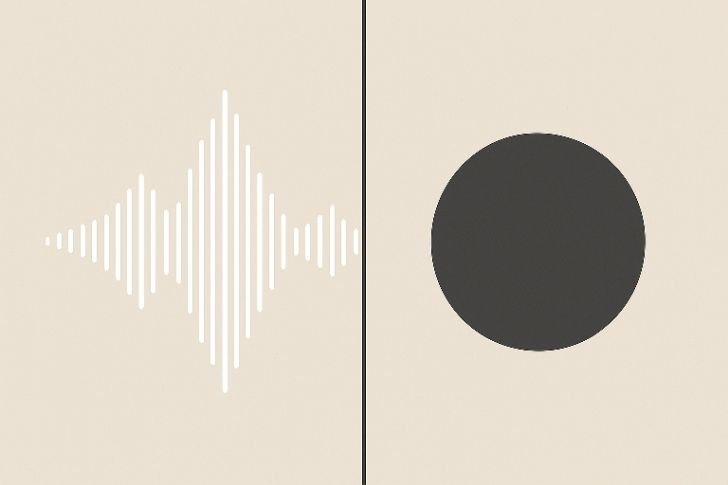
When it comes to white noise vs silence, your sleep environment plays a big role.
White noise masks sudden disruptions, like car horns or barking dogs, making it ideal for city dwellers.
Silence can be better if you live in a naturally quiet area or have a sensitive nervous system that prefers stillness.
💡 Tip: If you want to experiment, try sleeping with a white noise machine for a week, then with complete silence, and track your sleep quality.
Relaxation Sounds Benefits
Using specific sounds for relaxation can have measurable benefits:
1. Lowered Stress Hormones – Nature sounds can reduce cortisol levels.
2. Improved Focus – Steady, rhythmic sounds help your brain avoid distraction.
3. Better Sleep Quality – White and pink noise can help maintain deeper sleep stages.
4. Emotional Regulation – Calming sounds can activate the parasympathetic nervous system.
If you’re curious about the relaxation sounds benefits, you can start with simple tools like YouTube playlists or mobile apps for meditation and sleep.
Expert Insight
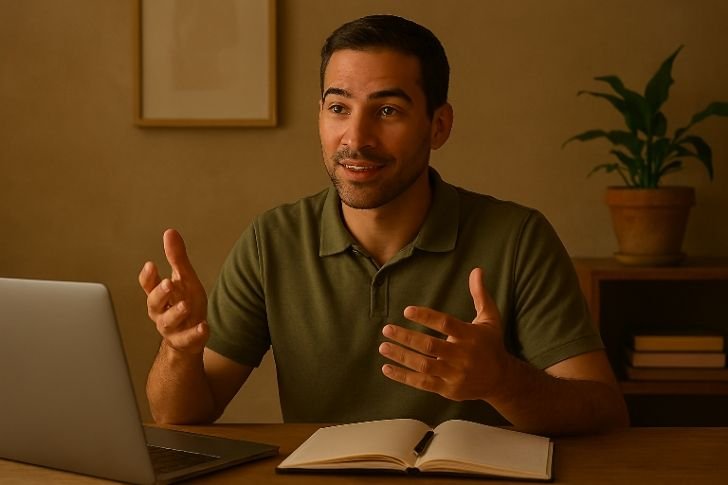
According to Harvard Health, if external noise can’t be fully eliminated, pink noise—like the hum of a fan or recordings of ocean waves—can help mask disruptive sounds and promote deeper, more restful sleep. This aligns with research showing that consistent, soothing background noise can help the brain transition more easily into the stages of sleep, reducing stress levels in the process (Harvard Health Publishing).
Real-Life Experiences
Many people find that sound therapy changes their life. For example:
Lisa, 32, New York: Uses rain sounds to fall asleep faster and says it has helped her anxiety.
David, 45, California: Switched to silence at night and noticed more vivid dreams and better concentration during the day.
How to Choose Between Sound Therapy and Silence
Ask yourself:
Do I live in a noisy or quiet environment?
Do I feel more relaxed with gentle background sound or with stillness?
Am I trying to improve sleep, focus, or emotional balance?
Choosing between sound therapy vs silence for stress relief does not have to be a strict either-or decision. You might find that certain relaxation techniques, such as listening to gentle rain sounds before bed, combine well with periods of intentional silence during the day. This hybrid approach offers the relaxation sounds benefits while also giving you time to enjoy the deep stillness that only silence can bring. Experimenting with both methods allows you to discover a balance that supports your stress management goals and your sleep quality.
Best Sound for Sleep Recommendations
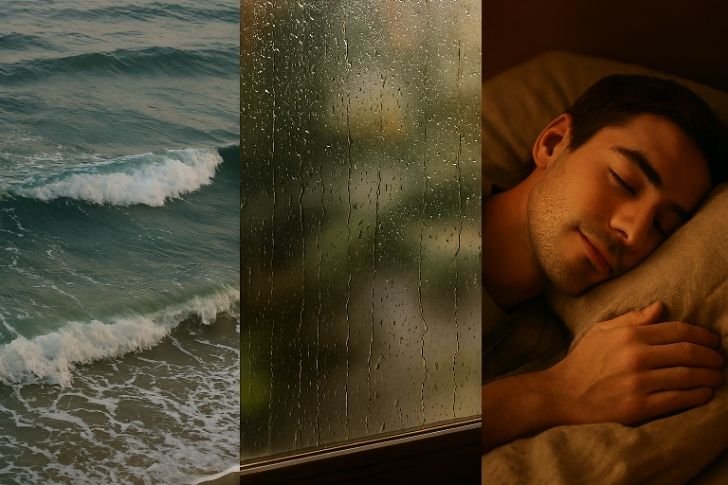
If you’re looking for the best sound for sleep, here are some popular options:
1. White Noise Machine – 🛒 Shop it now on Amazon
2. Pink Noise Playlist – Great for deep sleep
3. Nature Sound Machine – Ocean waves, rain, or forest ambiance
👉 Tip: Choose a device with a timer so it turns off after you’re asleep.
Practical Tips for Using Sound Therapy
Keep the volume low to avoid disrupting your sleep cycle.
Experiment with different types of noise to find what works for you.
Use high-quality audio devices to avoid distortion.
When Silence Works Best
Silence is best when:
You meditate or practice mindfulness.
You’re in a natural environment free from noise.
You’re engaging in deep focus work.
Combining Sound and Silence
You don’t have to choose one over the other. Many people use sound therapy to transition into relaxation, then switch to silence for deep rest.
Conclusion
When it comes to sound therapy vs silence for stress relief, there’s no universal winner—it’s about matching the method to your environment, personality, and needs. Sound therapy offers powerful benefits for those in noisy spaces or with difficulty sleeping, while silence provides unmatched mental clarity and calmness.
For optimal wellness, try experimenting with both approaches and see which works best for your mind. And don’t forget to explore other sleep-enhancing tips like blocking blue light and choosing sleep positions that support gut health.
